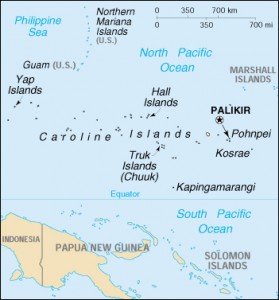Children of Micronesia
Realizing Children’s Rights in Micronesia
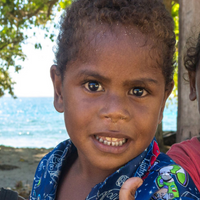
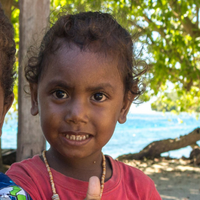
The Federated States of Micronesia, an island nation in the western Pacific Ocean comprising over 600 islands, faces many social challenges. With its population scattered over so many small islands, which are themselves spread over an area of approximately 1,600,000 km₂, it is difficult for the Micronesian state to provide effective health and educational systems. Children are the first to suffer, and despite the efforts of authorities, children’s rights are often blatantly violated.
Population: 106.000 Life expectancy: 69 years |
Main problems faced by children in Micronesia:
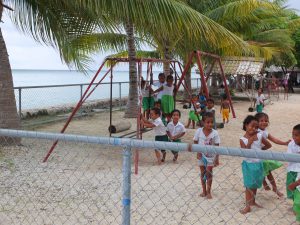
While school attendance is compulsory from the age of 6, due to a severe shortage of qualified teachers not all children have the chance to receive an education. By law, children are permitted to leave school either at 14 or after they have completed 8th grade.
Domestic violence
Although child abuse is criminalised in the Federated States of Micronesia, the Constitution grants parents the right to discipline their children. As a result, violence against children is widespread, with few cases reported to the authorities.
Sexual abuse
Cases of sexual violence concerning children are rarely reported for the reason that sexual violence is stigmatised, especially when it occurs within families. In such cases, family honour, or even community honour, take precedence over children’s rights.
Moreover, there is no specific law on rape, domestic violence and sexual violence against children and women.
In addition, no host structure exists for abused children and victims of violence. In addition there is no similar shelters for women.
There is no law in the Federated States of Micronesia which prohibits child labour. There is therefore no minimum working age, and a significant number of children have jobs. Figures from the year 2000 indicate that approximately 3,000 children work, most commonly assisting their families with agricultural tasks.
Legal problems with human rights protection
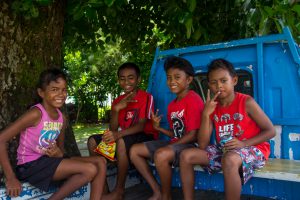
The Federated States of Micronesia is yet to become a signatory to a number of important international conventions for the promotion and protection of human rights, including the International Covenant on Civil and Political Rights and the International Covenant on Economic, Social and Cultural Rights.
Micronesia is also yet to ratify a number of important human rights conventions, including the Convention on the Elimination of all Forms of Discrimination Against Women, the Convention on the Civil Aspects of International Child Abduction.
Finally, note that Micronesia has not ratified the Protocols to the Convention on the Rights of the Child.
Environment
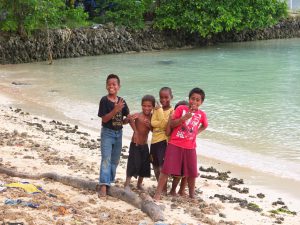
As an island nation, the Federated States of Micronesia is directly affected by global warming. Rising sea levels, tidal waves and seismic activity are just some of the problems islanders encounter, and the next generation faces an increasingly uncertain future. The nation’s president, Emanuel (Manny) Mori, has on several occasions appealed to the international community on the subject of global warming, stating that ‘the country risks disappearing underwater if nothing is done to combat global warming.’


